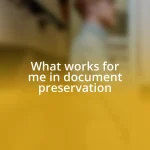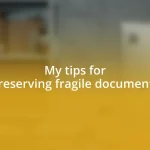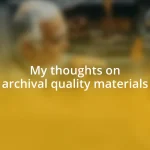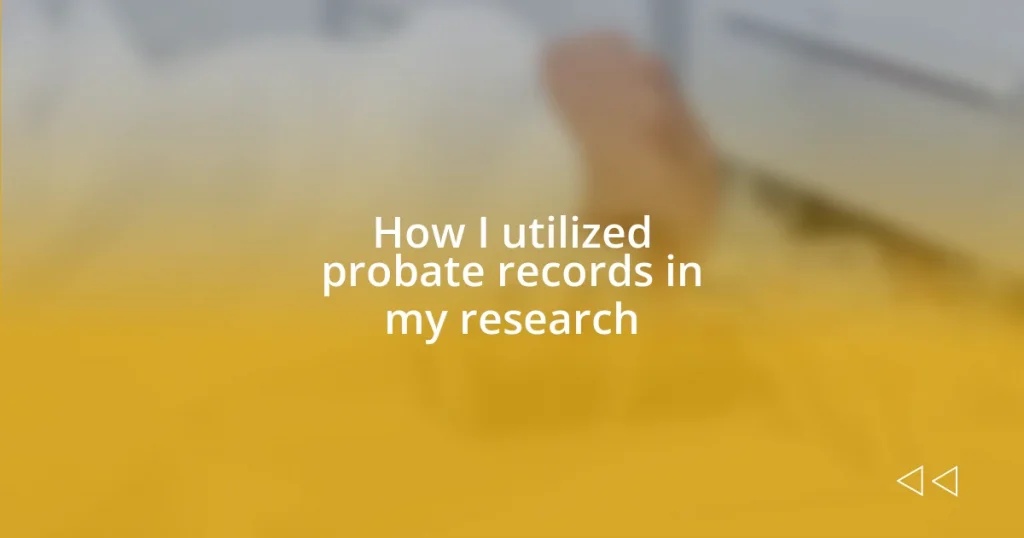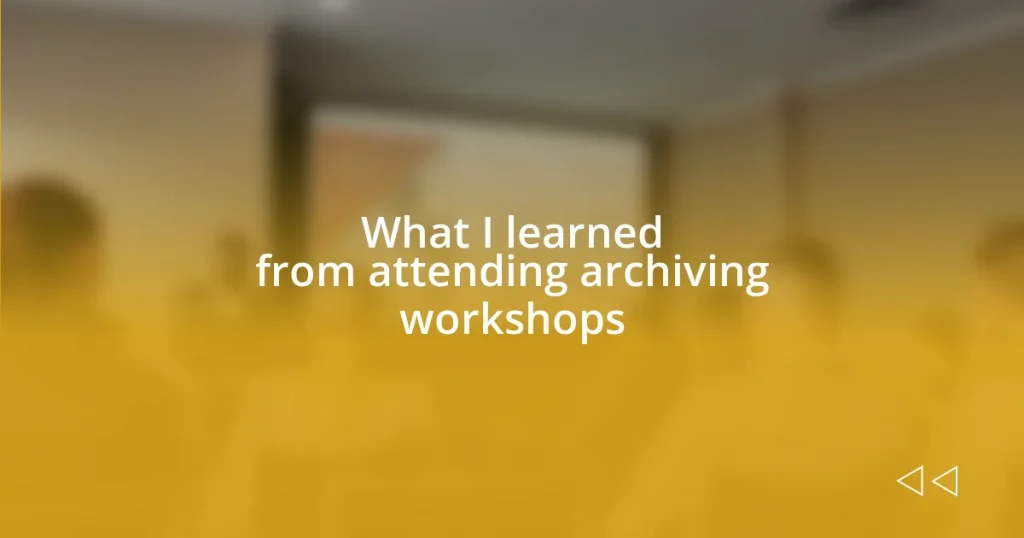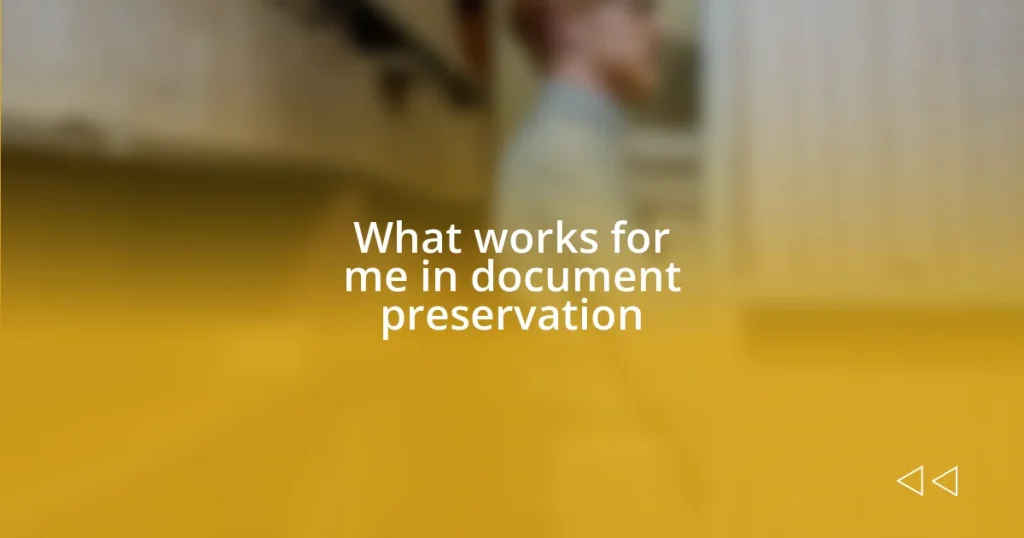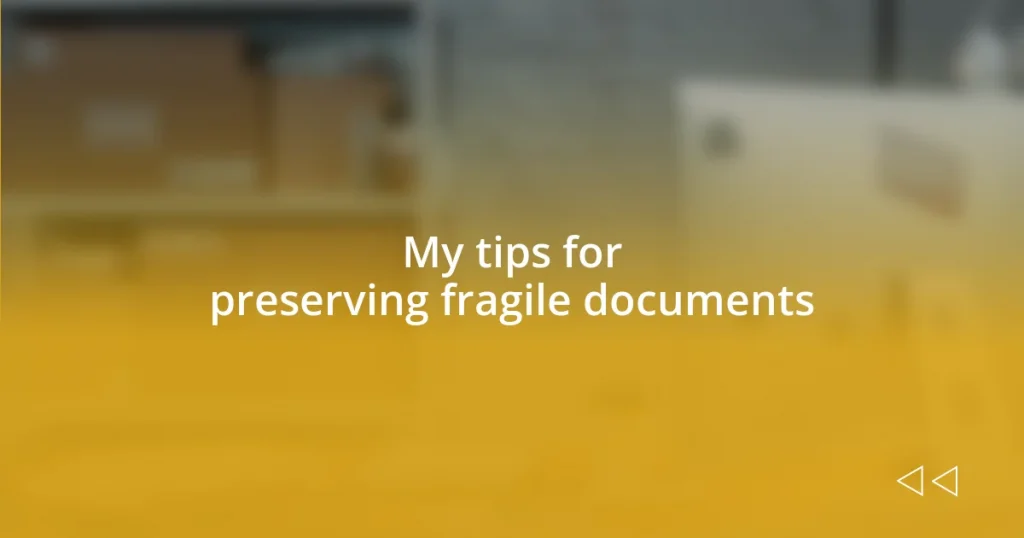Key takeaways:
- Probate records are crucial for understanding family history, revealing personal stories about ancestors’ final wishes and asset distribution.
- Effective research involves narrowing down searches to specific time frames, utilizing both online databases and local archives for richer findings.
- Analyzing probate records thoughtfully can uncover emotional connections and insights into family dynamics, enhancing one’s appreciation of ancestry.
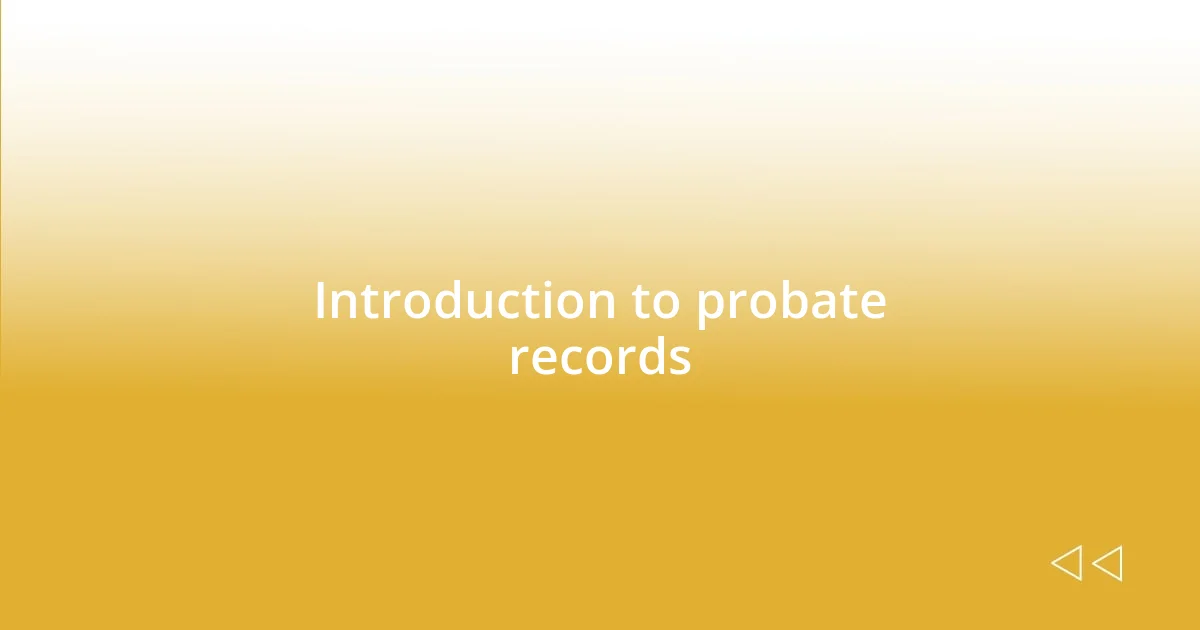
Introduction to probate records
Probate records are vital documents that provide a window into the lives of those who have passed, often revealing their final wishes and the distribution of their estates. I remember the first time I delved into these records; it felt like piecing together a part of history that was often overlooked. Have you ever wondered what secrets might lie in the pages of someone’s will?
These records typically include wills, estate inventories, and administration records, offering clarity on how assets were managed after death. As I sifted through these documents, I often found myself captivated by the personal touches—notes, valuations, and even the names of long-forgotten relatives. It’s fascinating how such a dry term as “probate” can unlock stories rich with emotion and family dynamics.
Understanding probate records can also help uncover important insights about your ancestry and heritage. For instance, as I tracked down the connections between my ancestors, I marveled at how these records illuminated their struggles and triumphs—a true testament to their legacy. Have you thought about how exploring probate might enrich your understanding of family history?
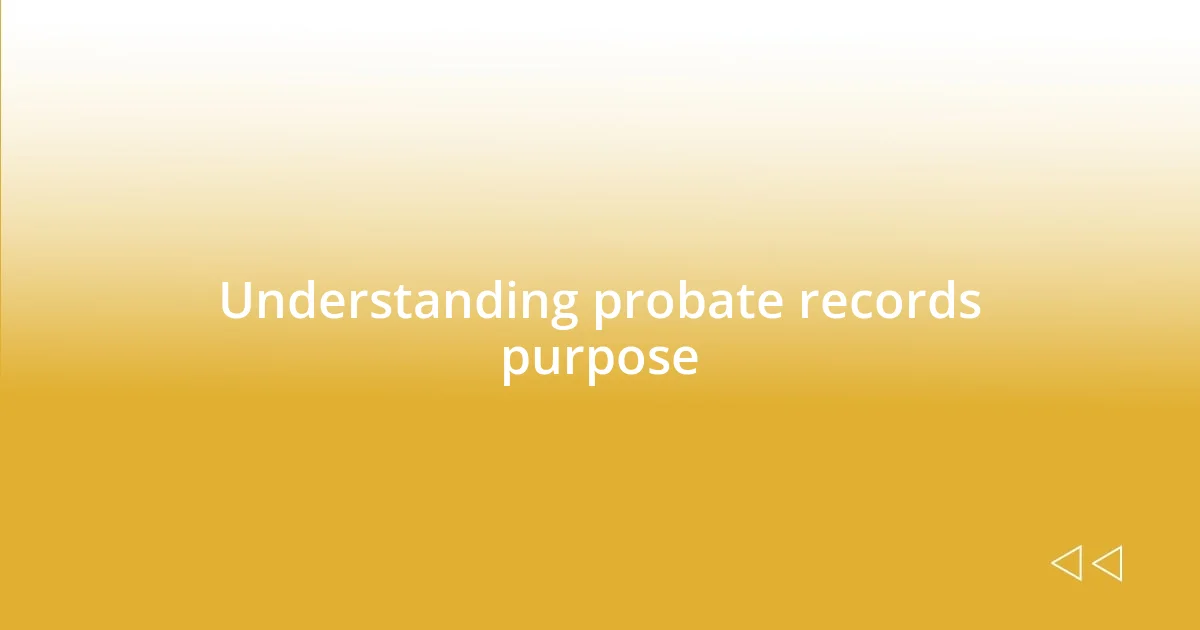
Understanding probate records purpose
Probate records serve several essential purposes, primarily to clarify the intentions of the deceased regarding their assets and responsibilities. I remember the moment I discovered my great-grandfather’s will; it was like finding a time capsule that explained not only what he left behind but also the values he held dear. It made me appreciate how these records are often the final voice someone has in guiding their descendants.
Here are some key purposes of probate records:
- Documenting Final Wishes: They articulate the wishes of the deceased regarding asset distribution.
- Establishing Legal Validity: These records provide a legal framework that can help resolve disputes among heirs.
- Maintaining Transparency: They promote accountability for executors, ensuring they manage the estate according to the will.
- Preserving Family History: Insights into relationships and lineage can be found through detailed inventories and family connections.
- Facilitating Inheritance: They allow beneficiaries to understand their entitlements and help in planning for future generations.
Every time I delve into these records, I deeply feel how they preserve not just the details of possessions but also the very essence of family ties and legacies. It’s an unexpected reminder of our interconnectedness across generations.
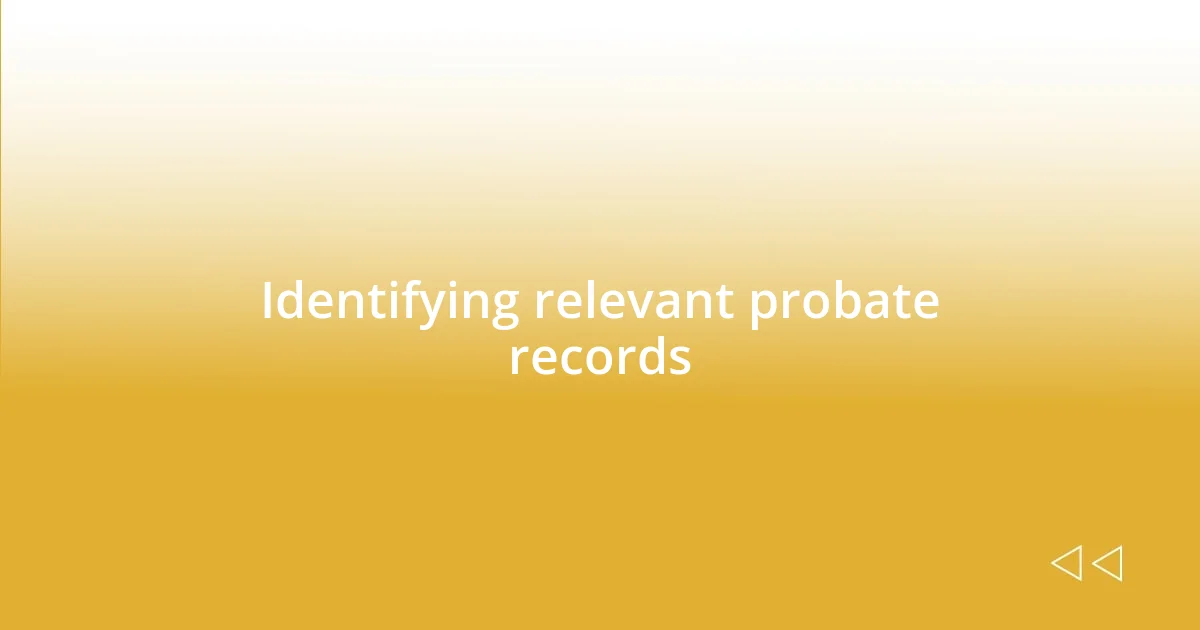
Identifying relevant probate records
Identifying relevant probate records can feel overwhelming at first, considering the sheer volume of documents available. I remember when I first started my research; I wasn’t quite sure where to begin. But, my strategy involved looking for specific clues—like unique names, dates, or locations that echoed through my family tree. It’s amazing how a single name can lead you to a treasure chest of documents that reveal fascinating details about your ancestors.
One effective way to narrow down records is to focus on particular time frames and geographical areas. For example, when I was exploring my great-aunt’s estate, I confined my search to her county’s probate court records from the 1950s. This focused approach allowed me to uncover not just her will but also her estate’s inventory, which included handwritten notes about her favorite possessions. Engaging with these artifacts transports you to a different time and adds depth to your understanding of family history.
Another tactic I found helpful was leveraging online databases and local archives. I often compare resources like Ancestry.com with my local library’s genealogy section to find complementary information. This combination of modern technology and traditional resources helped me paint a fuller picture of my ancestors’ lives. Every time I stumbled upon a new record, I felt a rush of excitement—like cracking a code that connected the past with my present.
| Resource Type | Strengths |
|---|---|
| Online Databases | Speed and accessibility; often have digitized records; allows for easy expansion of searches |
| Local Archives | Personal interaction with librarians; often offers unique resources or guidance; can uncover records not available online |
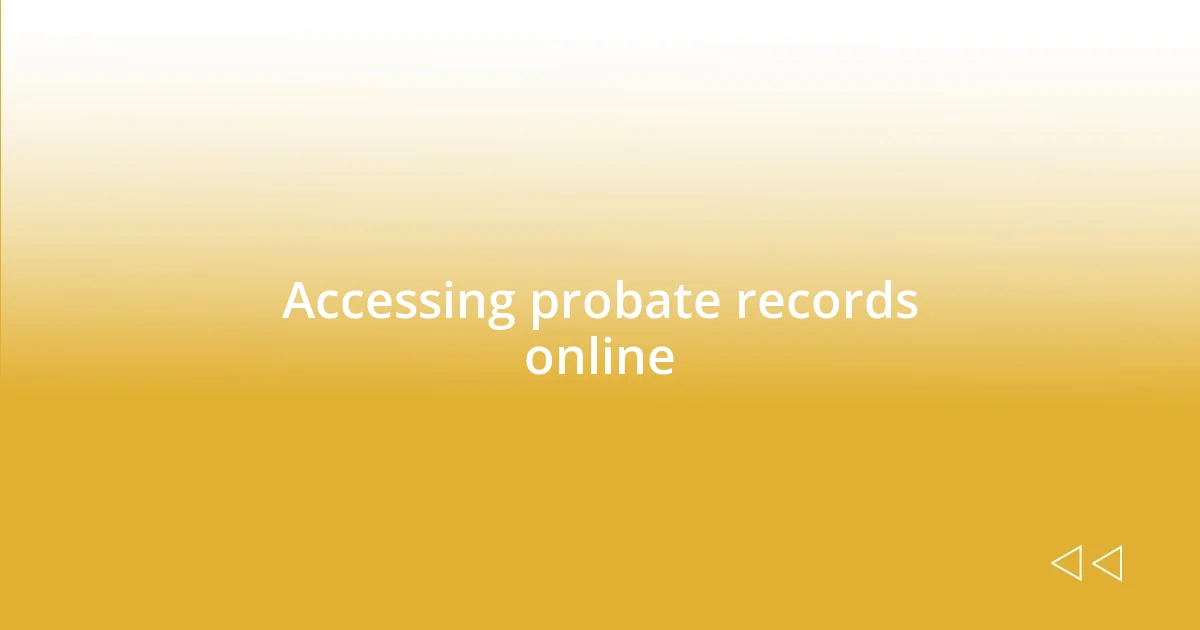
Accessing probate records online
Accessing probate records online can be an eye-opening experience. When I first logged onto a state’s probate court website, I felt a mix of curiosity and nervousness. Would I find what I was looking for? I remember scrolling through search options, my heart racing at the thought of uncovering family secrets or missing pieces of my ancestry puzzle. It’s fascinating how these online platforms can now connect us to our heritage with just a few clicks.
Navigating these sites often requires some patience, but it’s worth it. Early on, I learned the importance of using specific filters, like dates and names, to narrow down my search. The first time I unlocked a document that detailed my great-grandmother’s property distribution, I was overwhelmed—feeling as if I had given her a voice through time. It’s moments like these that make searching online not just about accessing records; it becomes a heartfelt journey into the past.
While online resources are invaluable, I’ve found that they also have their limitations. Sometimes you may encounter inconsistencies or missing documents that are available only in a physical archive. Reflecting on this experience, I wondered: how many other discoveries might I be missing out on in the digital realm? Each search has motivated me to dig deeper, combining my online searches with trips to local repositories where I often stumble upon records that tell a richer story than I ever expected.
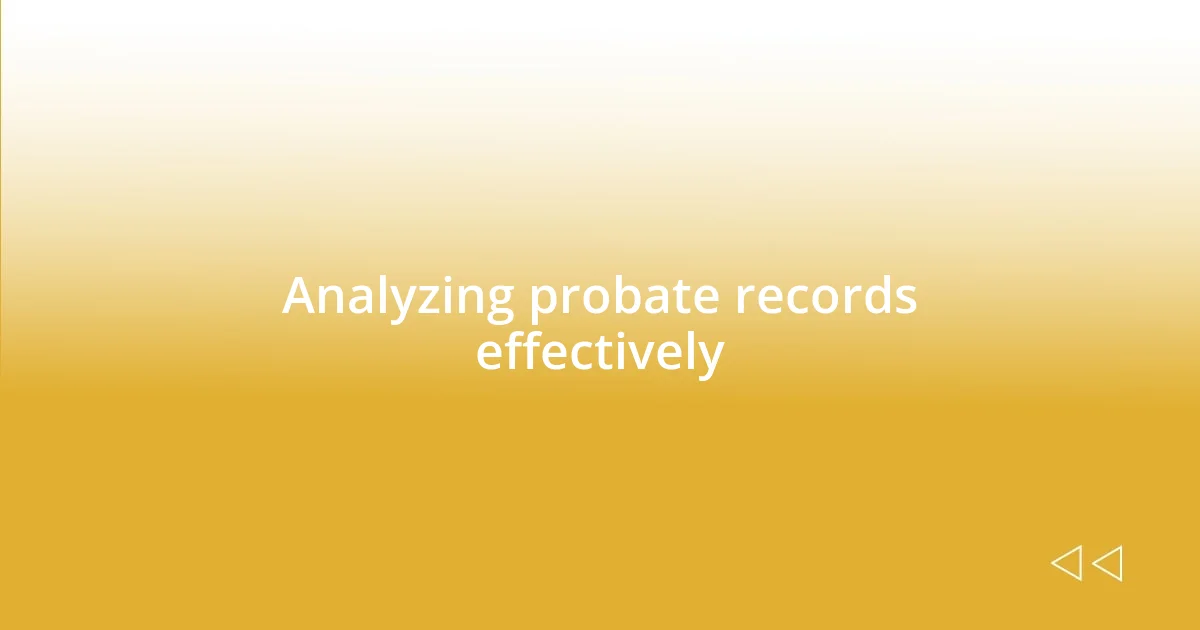
Analyzing probate records effectively
Analyzing probate records effectively requires a keen eye for details and an understanding of the context surrounding each document. I remember when I stumbled upon a will that mentioned not just the beneficiaries but also specific items—like my great-grandfather’s pocket watch. It dawned on me how such personal touches can illuminate family dynamics and relationships. Have you ever reflected on how a simple item might hold a world of stories?
As I sifted through various estate inventories, I began to recognize patterns and recurring names, connecting distant relatives. It was almost like piecing together a jigsaw puzzle. I vividly recall the thrill of linking two unfamiliar names found in a probate petition to a branch of my family tree I had never explored. Every new connection felt like uncovering a hidden chapter of my family’s narrative, further fueling my curiosity.
To get the most out of these records, I learned to ask questions as I analyzed the data. Why did this will specify a donation to a local church? What did the choice of guardianship reveal about family priorities? Delving deeper into these records led me to unexpected findings, such as a long-lost relative who had been active in their community. Every nuanced detail I discovered not only enriched my understanding of my ancestors but also transformed my research into a deeply personal journey.
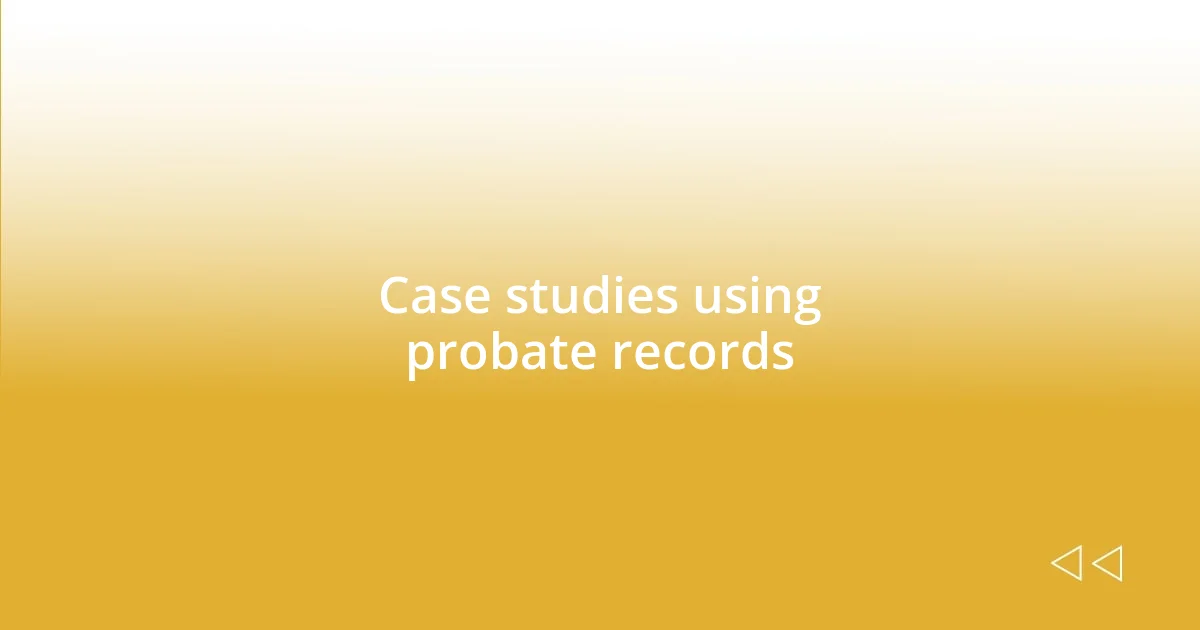
Case studies using probate records
I distinctly remember when I uncovered a probate file from the 1800s, revealing the distribution of my ancestor’s estate. What struck me was the mention of a cherished family Bible among the belongings. I couldn’t help but wonder: what stories had been recorded within those pages? The realization that my family possessed a tangible connection to their past, often overlooked, deeply moved me. It showed me how probate records can not only trace lineage but also evoke emotions tied to family heritage.
Another fascinating instance arose when I analyzed a series of probate records related to a small-town community. The estate inventories highlighted local businesses that my ancestors had owned, showcasing their roles as community pillars. As I pieced together their contributions, I couldn’t help but think about how these records reflect a shared history, revealing the interconnected lives of families in that era. Did these ancestors comprehend the impact of their presence on future generations? This insight allowed me to appreciate the rich tapestry of community life that shaped my heritage.
Through these experiences, I’ve realized that probate records are more than just legal documents. They are windows into the emotional lives of those who came before us. When I discovered a letter included in one of the probate files, written by a widow expressing her love and hopes for her children, I felt an overwhelming connection to her pain and resilience. It’s moments like these that remind me how every record has the potential to provide not only factual information but also profound emotional resonance. Have you ever considered how an old document could tell a heartwarming story of love and loss?
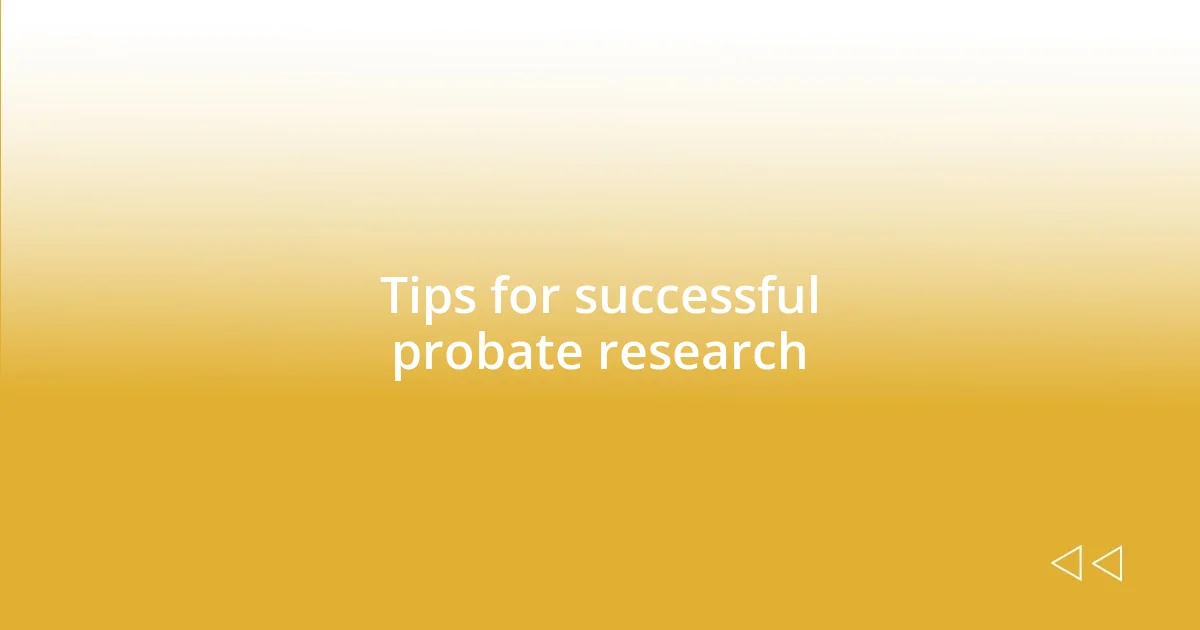
Tips for successful probate research
One of the most effective tips I can offer is to create a systematic approach to your research. I found it helpful to organize documents chronologically or by family branches. This method illuminated the timeline of events and relationships. Have you ever felt overwhelmed by the sheer number of documents? A well-structured outline can reduce that chaos, making each piece connect seamlessly to the bigger picture.
Another valuable insight I’ve gleaned is to be patient and diligent in your search. There were times when I felt frustrated after hours of sifting through dusty records. However, I remember the excitement of finally uncovering a probate file that answered a long-standing family mystery. The thrill of discovery often outweighs the frustration of the hunt—it’s part of the journey. Why not enjoy the process as much as the findings? Every effort you make contributes to a richer narrative.
In addition, don’t hesitate to leverage social networks and forums related to genealogy. It was through a local online group that I connected with someone who had already researched a common ancestor. That collaboration opened doors I never imagined, allowing me to access records that would have taken me years to find on my own. Have you considered reaching out to others? Sharing knowledge and resources can not only speed up your research but also enrich the journey by creating new connections in your family history adventure.

